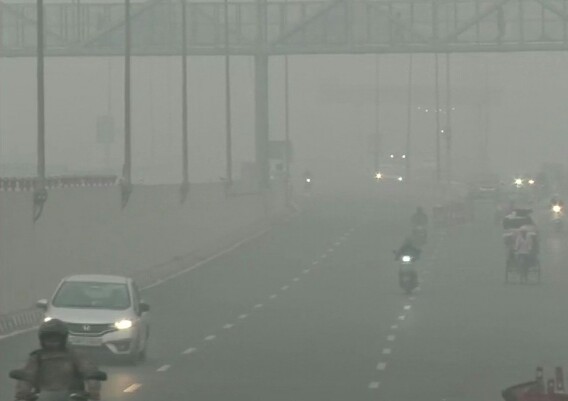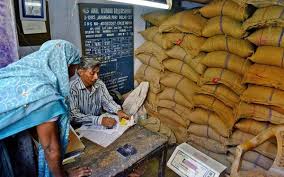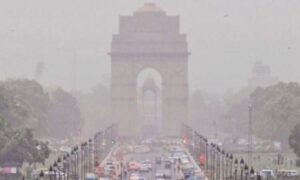The national capital’s air quality index (AQI) remained in the “severe” category for the fifth consecutive day on Monday morning.
The AQI on Monday at 6am was 459, which was higher than the previous day’s 24-hour average of 416.
On Monday, the minimum temperature recorded at 6.10am was 10.4 degrees Celsius (C).
“There is moderate fog with visibility of only 400 metres (m). No wind is blowing. The AQI has spiked further because of calm and stable conditions at night and in the morning,” said Kuldeep Shrivastava, head, regional weather forecasting centre.
The AQI in neighbouring Noida in the national capital region (NCR) was worse than Delhi at 475. A similar condition persisted in Gurugram (472) and Faridabad (462) in the NCR, which have been hit hard by farm fires.
An AQI between 301 and 400 and from 401 to 500 are considered in the “very poor” and “severe” category, respectively.
Severe category air affects healthy people and seriously impacts those with existing health conditions, according to the Central Pollution Control Board (CPCB).
Scientists have attributed the current spate of bad air to heavy load of pollutants from farm fires raging in neighbouring Haryana and Punjab.
Over 4,900 and 3,500 farm fires raged in Punjab on Saturday and Sunday, respectively, the Union Ministry of Earth Sciences’ data showed.
Smoke from stubble fires coupled with calm winds led to a significant worsening of AQI. Farmer leaders said farm fires would continue till November 15, as harvesting is still in progress.
One of the reasons for the prolonged stubble fire in Punjab is the shortage of farm labour, who had returned to their native states during the 68-day coronavirus disease (Covid-19)-induced lockdown restrictions, which were enforced by the government from March 25.
“Fires will continue for a week or so. All the late varieties of paddy are being harvested. Many parts of the state faced labour shortage this year. Most farm labourers are from Bihar and Uttar Pradesh (UP). They returned to their native places during the lockdown restrictions. There was a labour shortage during the beginning of harvesting season,” said Harinder Singh Lakhowal, general secretary, Bharatiya Kisan Union.
Scientists said air quality is unlikely to improve till Tuesday.
“Winds are in a transitional phase. On Monday evening, they may shift to the north-easterly direction. However, there is no likelihood of any improvement in air quality because wind speed is likely to remain very low. Air quality may remain severe on Monday. No significant improvement is expected around Diwali, which will be celebrated on Saturday (November 14). The AQI is consistently in the “severe” category because of high farm fire counts.” said Vijay Soni, scientist, IMD, air quality division.
IMD has predicted that minimum temperature is likely to drop further in the national capital.
The maximum and minimum temperature is expected to be around 30 and 10 degrees C, respectively, on Monday.
On Sunday, Delhi’s minimum temperature, recorded at the Safdarjung observatory, which is considered the official reading for the city, was 11.2 degrees C – three notches below normal. The maximum temperature was 29.6 degrees C.
By Hindustan Times




























 WhatsApp us
WhatsApp us